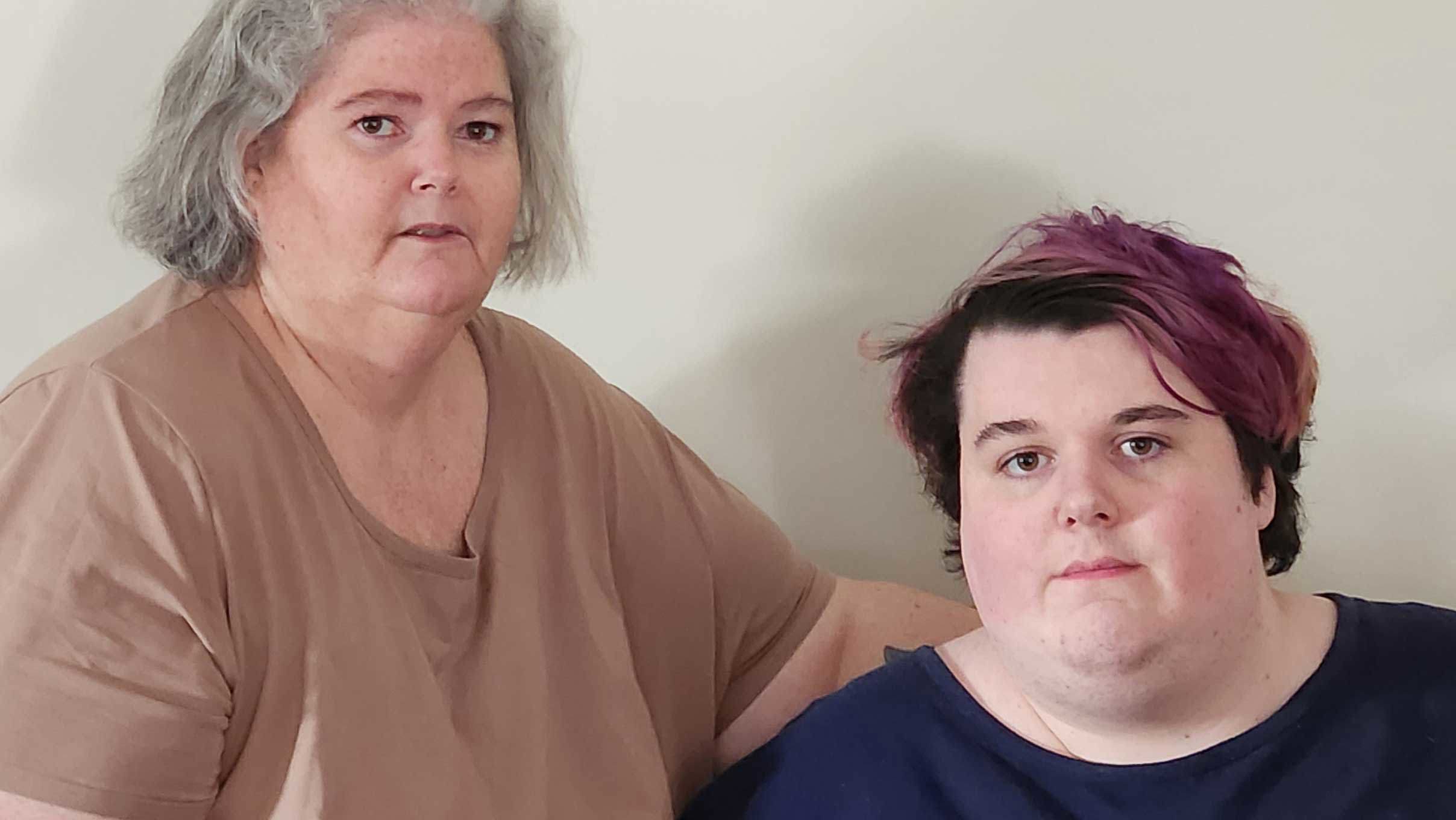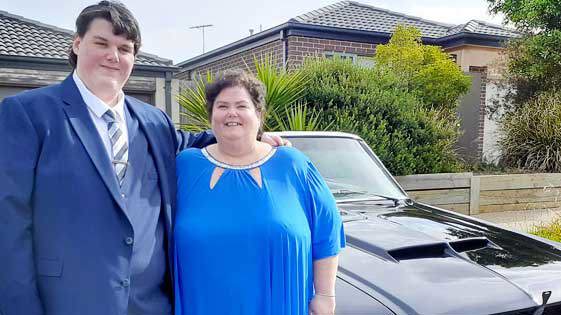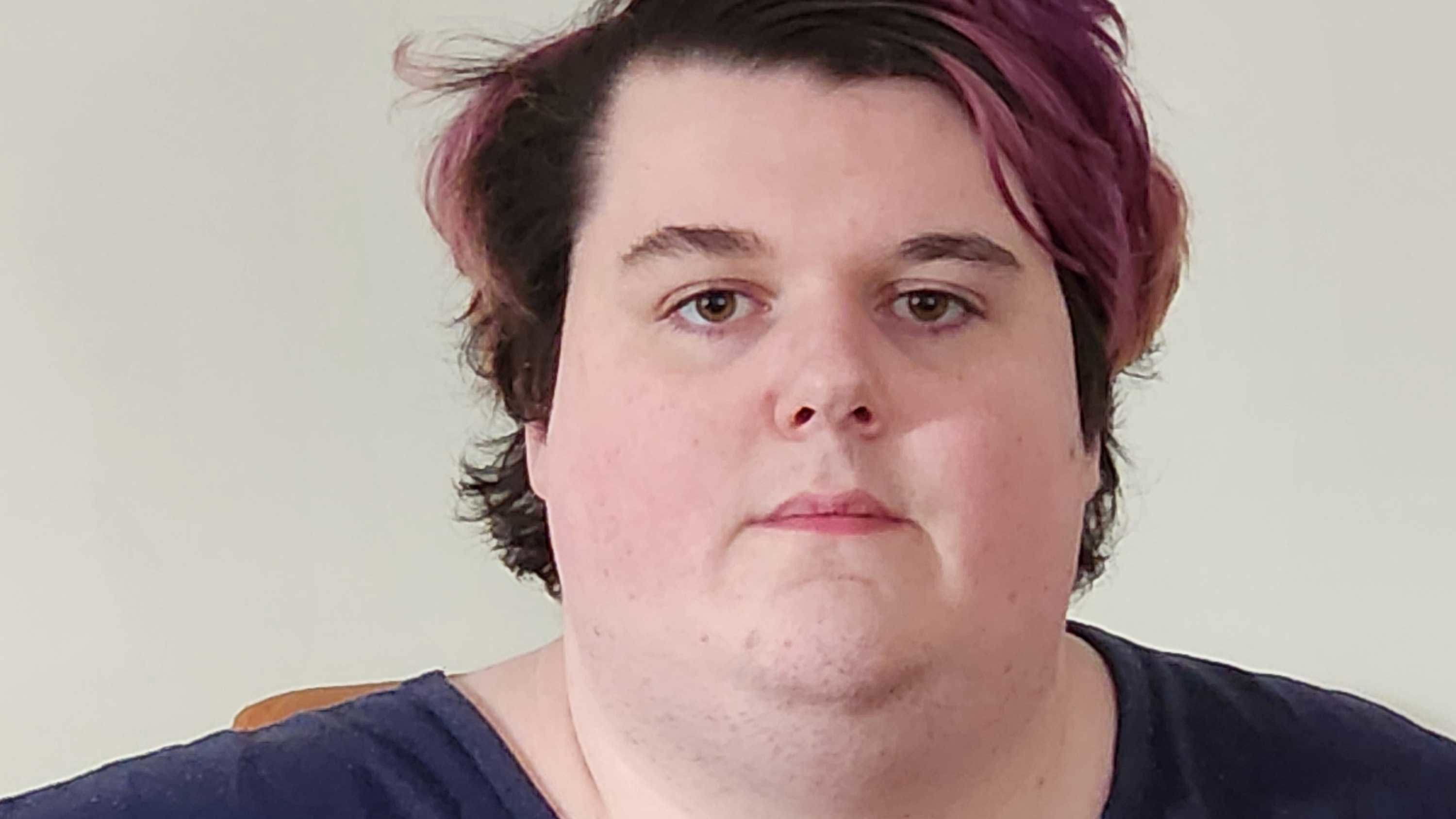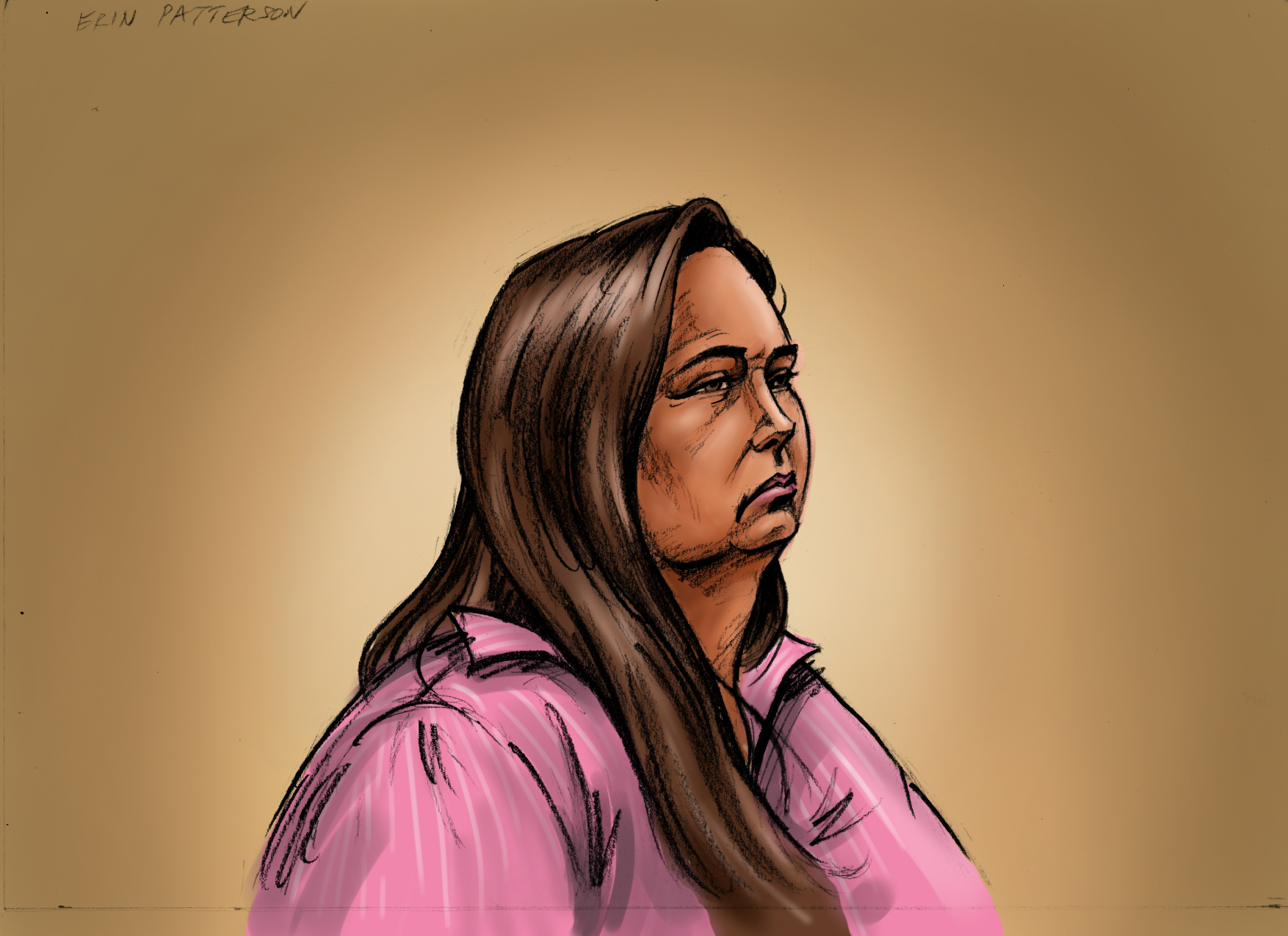
For five years, Aidan McManus has been suffering from a mystery illness, which has come to dominate his life.
For five years, Aidan McManus has been suffering from a mystery illness, which has come to dominate his life.
It began when the 22-year-old from North Melbourne was just 17 and in his final year of high school, his mother Angela McManus told 9news.com.au.
The first sign of the condition came when Aidan began to lose some of the feeling in his feet.
"He came to me and said his feet were feeling tingly and numbish," his mother said.
READ MORE: Mushroom cook's estranged husband takes stand in trial

Aidan's feet then began to swell, and his worried mother took him to the GP.
"The doctors said it was fluid retention and put him on some tablets, but they didn't work," Angela said.
Aidan soon began to find the simple act of walking painful, his mother said, adding it was "like he was walking on little tacks".
At the same time, Aidan had also been diagnosed with post-viral irritable bowel syndrome (IBS), which made his health needs even more complex.
Despite only managing to attend around five weeks of year 12, Aidan persevered and managed to complete his high school certificate, Angela said.
The strange numbness in Aidan's feet slowly became worse and he was referred to a neurologist who ran a battery of tests in a bid to find out what was happening.
Over the past three years, Aidan's neurologist had exhausted every possible avenue, his mother said.
"They must have done 20-odd blood tests. They cut a piece of nerve out of his leg to do a biopsy on it. They did a lumbar puncture and genetic testing - none of these tests showed up any answers."
What was clear was that Aidan's nerves were being affected. He was ultimately diagnosed with a generalised nerve disorder - axonal peripheral neuropathy - which disrupts how nerve cells transmit signals throughout the body.
But with no clear cause able to be identified, Aidan's family were told his condition was likely to get worse, and he would possibly end up in a wheelchair.

Unfortunately, this has proved to be true, and over the past few years, the lack of feeling had moved up his legs and into his hands, his mother said.
"We were told it will eventually go to Aidan's hands. We were thinking that might happen 10-15 years down the track, but one night, Aidan came to me and said, 'Mum, I picked up my can of Coke and my hands felt like they were on fire'."
"If he holds something cold, it feels like his hands are burning. And if he picks up something hot, it's like it's freezing."
The baffling condition had affected all aspects of Aidan's life, she said.
"For those obvious reasons, he can't cook. He's got to be very careful. When I do give him meals I've got to say, 'It's really hot, or it's really cold.
His ability to walk, as well as his balance and co-ordination had all been affected, she added.
"He can walk, but not very far, and because of it all, he's put on quite a bit of weight."
Things had been made harder after Aidan's application for NDIS (National Disability Insurance Scheme) support had been rejected last November, Angela said.
In a letter seen by 9news.com.au the NDIA (National Disabilty Insurance Agency) said Aidan did not meet the requirements for funding under the scheme because had had not "examined all possible treatment options".
However, in a letter provided by his neurologist to the NDIA as part of his application, also seen by 9news.com.au, the specialist specified that there were no treatments available.
Aidan's condition was progressive and very unlikely to resolve, the neurologist said.
"He has a diagnosis of axonal peripheral neuropathy, which is progressive in nature and at this stage, after extensive investigation, no cause has been identified. He has had no treatment for this apart from pain relief because there is no treatment available," the letter reads.
"I would strongly support him being eligible for inclusion in the NDIS as I believe that he has an incurable disability and will continue to worsen."

Angela said the NDIS decision did not make sense.
"We have tried everything and its upsetting and frustrating. NDIS just tick boxes to say 'yes' or 'no'. I'm sure they don't have a neurologist to give a correct answer," she said.
An NDIS spokesperson said: "To meet access for the NDIS, a person must meet all the eligibility criteria, including permanency.
"A review of all evidence provided to the NDIA regarding Aidan's conditions and support contained inconsistent medical advice as to treatment options and so the permanency requirements could not be satisfied."
Do you have a story? Contact reporter Emily McPherson at emcpherson@nine.com.au
 Mushroom cook's husband cries recalling his dad 'struggling'
Mushroom cook's husband cries recalling his dad 'struggling'
 Mix of lies and poison in deadly mushroom lunch trial
Mix of lies and poison in deadly mushroom lunch trial
 'Escape, hide, tell': Terror cop's plea after mass stabbing
'Escape, hide, tell': Terror cop's plea after mass stabbing
 Woolworths to remove popular Everyday Rewards program perk
Woolworths to remove popular Everyday Rewards program perk
 Baking influencer dropped from government-funded program amid recipe feud
Baking influencer dropped from government-funded program amid recipe feud
 Liberals win council clash over voting centre signs
Liberals win council clash over voting centre signs
 Shopper allegedly bottled by teen girl after trying to stop theft
Shopper allegedly bottled by teen girl after trying to stop theft
 Boy, 8, out of coma after Sydney woman's kidnapping and death
Boy, 8, out of coma after Sydney woman's kidnapping and death
 This year's Archibald Packing Room Prize revealed
This year's Archibald Packing Room Prize revealed
 Expert's warning about viral trend that left Tia's skin 'flaking off'
Expert's warning about viral trend that left Tia's skin 'flaking off'
 Popular touring festival to return this summer after shock cancellation last year
Popular touring festival to return this summer after shock cancellation last year
 Shirtless man allegedly knocks woman, 92, unconscious on Melbourne street
Shirtless man allegedly knocks woman, 92, unconscious on Melbourne street
 Wild weather blasts New Zealand city, residents warned to stay indoors
Wild weather blasts New Zealand city, residents warned to stay indoors
 Engine failure sparks recall of thousands of Ford Ranger utes
Engine failure sparks recall of thousands of Ford Ranger utes
 Country claims nuclear-armed neighbour preparing to strike
Country claims nuclear-armed neighbour preparing to strike
 Richest comedians in the world revealed as one's fortune surpasses $1b
Richest comedians in the world revealed as one's fortune surpasses $1b
 Aussie bank forecasting four more rate cuts as inflation hits RBA target
Aussie bank forecasting four more rate cuts as inflation hits RBA target
 Grim discovery after raging inferno destroys Queensland backpacker hostel
Grim discovery after raging inferno destroys Queensland backpacker hostel
 'Pretty scary': Man drives Jeep off jetty in tense police standoff
'Pretty scary': Man drives Jeep off jetty in tense police standoff






